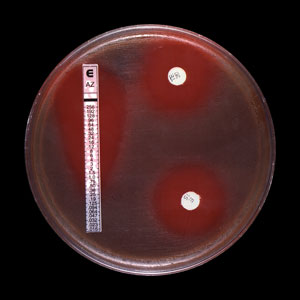FDA denies petitions to restrict livestock drug use
Federal drug authorities denied in November 2011 two petitions to rescind approvals for many antimicrobial uses in livestock.
The Food and Drug Administration published in November a pair of decisions against petitions filed by nonprofit advocacy organizations in 1999 and 2005, when those organizations formally sought agency withdrawal of approvals involving growth promotion and disease prevention. Leslie Kux, FDA acting assistant commissioner for policy, said in the denial letters that the FDA shares the petitioners' concerns but is pursuing alternative efforts that are expected to reduce antimicrobial use and increase oversight by veterinarians. Those efforts are expected to accomplish these goals more quickly and at a lower cost than withdrawal proceedings, the letters state.
The FDA letters cite the years—or in the case of nitrofuran, two decades—of proceedings and millions of dollars in agency costs in contested withdrawals. Drug producers could request such formal proceedings for each antimicrobial affected.
The letters, along with previous FDA announcements, indicate the regulatory agency is instead trying to phase out livestock production uses of medically important antimicrobials and phase in requirements that veterinarians, through veterinary feed directives, control the use of some antimicrobials that were approved in previous decades as over-the-counter drugs. Specifics on that plan are expected in the final version of the agency's draft guidance for industry, "The Judicious Use of Medically Important Antimicrobial Drugs in Food-Producing Animals."
"Moreover, this strategy does not foreclose initiating withdrawal proceedings in the future," the letters state.
Petitioning for end of subtherapeutic use
In May, four of the seven organizations connected with the petitions as well as the Natural Resources Defense Council filed a federal lawsuit that accused the FDA of unreasonably delaying rulings on the 1999 and 2005 petitions and failing to act on a 1977 agency proposal to withdraw approvals for subtherapeutic uses of penicillin and tetracycline in animal feed.
The FDA draft guidance document states that, in 1977, the agency proposed withdrawing approvals for subtherapeutic uses of penicillin and tetracycline in animal feed on the basis of evidence that such uses had not been shown to be safe. Congress directed FDA to conduct further studies, and a study contracted with the National Academy of Sciences generated a report in 1980 that indicated little epidemiologic research had been completed on the use of antimicrobials in feed, and existing data were insufficient to draw conclusions about hazards to human health. The FDA and other government agencies have commissioned and conducted additional studies on antimicrobial use in feed, and the agency has not enacted the proposal.
Jenny Powers, a spokeswoman for the council, said the lawsuit will continue on the basis of the 1977 proposal, and her organization was considering whether to pursue additional actions related to the petitions.
Steven Roach, public health program director for Food Animal Concerns Trust, similarly said his organization would continue pursuing the federal lawsuit against FDA on the basis of the 1977 proposal. The trust was also considering its options on responding to the petition denials, including filing appeals.
The Food Animal Concerns Trust and Union of Concerned Scientists were connected with both petitions and the lawsuit, and the Environmental Defense Fund was involved with both petitions. The Center for Science in the Public Interest and Public Citizen's Health Research Group were also among the 1999 petitioners, and the American Academy of Pediatrics and American Public Health Association were among 2005 petitioners.

Both petitions called for the FDA to ban, by withdrawing approvals, the herdwide or flockwide uses of antimicrobials related to those used in human medicine if those livestock uses were not connected with treatment, prevention, or control of specific diseases. The March 1999 petition said such a ban should affect use of penicillin, tetracycline, erythromycin, lincomycin, tylosin, and virginiamycin. The April 2005 petition called for the withdrawals to affect use of penicillin, tetracycline, aminoglycoside, streptogramin, macrolide, lincomycin, and sulfonamides.
The FDA issued responses to the first petition in 1999 and 2001 and the second in 2005. In those replies, the agency noted the complexity of the issue, the time needed to evaluate tens of thousands of comments, the need for a process for contested drug approval withdrawals, and the costs for the agency to withdraw affected drugs. Agency officials said they had not decided whether to withdraw any of the drug approvals listed in the petitions, but they noted that the agency had been developing and implementing a regulatory strategy that included nonbinding guidance for industry.
Similar concerns, differing directions
In denying the petitions, FDA officials noted that their agency spent five years and $3.3 million in the withdrawal process before the 2005 withdrawal of approval for use of enrofloxacin in poultry. Since publication of the draft guidance on judicious antimicrobial use, pharmaceutical companies have indicated they are willing to cooperate with efforts to phase out some production uses and increase veterinary oversight.
"FDA is committed to working with animal drug sponsors, the veterinary and public health communities, the animal agriculture community, and all other interested stakeholders in developing a strategy to address antimicrobial resistance concerns in a manner that is protective of both human and animal health," both letters of denial state.